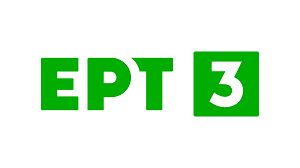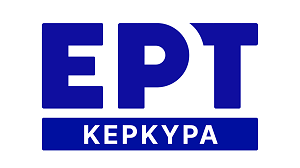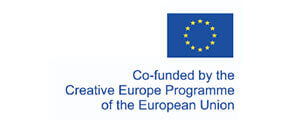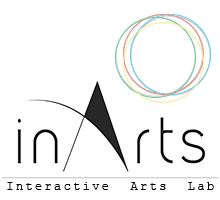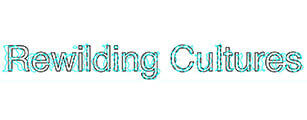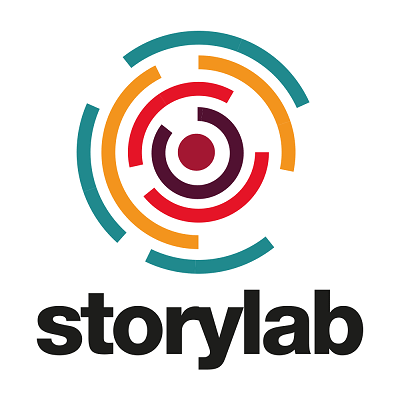This project reflects the collaboration between the Department of Foreign Languages, Translation and Interpreting (DFLTI) and the Department of Audio&Visual Arts (AVARTS) of the Ionian University in Corfu, aiming towards a study on the intertextuality between the art of sound and the art of literature. Through the creation of short stories related to sound works, we would like to highlight the creative potential of the combination of sound art and narrative literature, which could result in a powerful and evocative art genre, further expanding the traditional ways of storytelling, but also contributing to the composition of sound through the study of perceptibility.
Theoretic Framework
An understanding between music and narrative structure constitutes the creative basis of the activities in this project. Electroacoustic music can be analysed in its sonic-lingual characteristics (morphological and micro-macro structural), such as form, individual sounding objects-textures and combinations, composed space and projected-sound spatialisation, dynamic, spectral space occupancy, motion, etc, being all elements, which may influence the creation of stories through listening to a work of sound as a whole. An important aspect regarding the language of electroacoustic music is also the ambiguity of sound recognition and perception, being an open cognitive field, which allows for imagination to unfold and freely connect sounds with emotions, images, events, scenarios etc. related to imaginary stories.
Sound has always played a definite role in storytelling, within oral traditions of ancient civilisation to contemporary audio books. However, the embodiment of electroacoustic music within the context of literature is a relatively new phenomenon. A pioneering figure of this idea is author and musician David Toop, who has already investigated into the relationship between sound and literature in his work. In his book Ocean of Sound Toop supports that sound is a fundamental expressive and evocative element and the use of sound in literature may widen and enrich the experience of narration. Finally, the research of Philipp Schweighauser Literary Acoustics, based on the writings of Murray Schafer and Barry Truax, provides a study on electroacoustic music through the prism of perceptual interactivity, re-establishing the notion of listening literature and the functionality of interaction between the art of sound and the art of writing.
Research Plan
The research is materialised in four stages.
In the first stage sound composers compose freely with no specific creative agenda, based on certain key-words, from which the creation of a work might be inspired. In contrary, writers encounter a limited and specific subject (i.e. gender-based violence). The aim is to highlight how a specific conceptual framework might influence the perceptibility of the sound-work, and thus how it might preconceive the meaningful output of writing.
In the second stage both composers and writers receive specific key-words without specific subject, where the research focuses on the study of the similarity or differentiality of the influence of the same data to different arts and creators.
In the third stage all creators are encouraged to define their own subject/idea behind their works. This will define the potentiality of collaboration between the different creative worlds independently of any exogenous factor, throughout the creative process and its perceptual outcome.
Finally, in the fourth stage, an analysis of the creative results will take place, additionally documented via questionnaire sheets filled in by all participants.
Methodology
Student-participants are from the modules Literature of German-speaking Countries (DFLTI), Electronic Music (AVARTS) and Sound Art (AVARTS).
After a theoretic introduction of both arts in each class, AVARTS students are encouraged to compose electroacoustic music works, which then are projected to DFLTI students, who listen and choose one of them as an aural basis for their short story. The projection of sound is done in the studio of AVARTS through a multichannel sound-diffusion system, creating real concert conditions in order to achieve the best possible immersion into the sound.
Listening is followed by an analytic discussion between creators and listeners with regard to compositional methods and perceptibility. This procedure aids the general understanding of each work, but also includes a perceptive deconstruction aiming towards the understanding of individual sound constituents and symbolisms, but also discussing the role of technology for sonic transformations. Through this method, the art of sound is practically introduced to the students of literature.
After the stories are created, a reading session takes place, where each story is accompanied by the track from which it was inspired. The participants are asked to fill in questionnaires regarding the creation process and the creative output.
Stavroula Vraila is a graduate from the Department of German Language and Literature of the National and Kapodistrian University of Athens (2003) and holds an MA in “Theory and Didactics of Translation” from the Department of Foreign Languages, Translation and Interpreting of the Ionian University (2005). She completed her PhD thesis on Psychoanalytic interpretation of literature at the NKUA. Since 2019, she has been working as an Academic Scholar (NSRF) at DFLTI, teaching Political-Legal-Social Translation. Her fields of research are transnational literature, creative writing and its role in translation practice, translation of political and forensic texts, transcreation and language technology.
Apostolos Loufopoulos, Associate Professor, Department of Audio&Visual Arts, Ionian University, studied at Ionian University and City University in London. His research interest focuses on nature and sound composition. Writes music for theater, installations, but also purely electroacoustic music. His composition and research projects have been presented in world-renowned festivals and conferences for the last 23 years. International prizes include competitions such as Ars Electronica, Bourges, Noroit, Metamorphoses, Space of Sound, Franco Evangelisti, Musica Nova, SCRIME, I. Xenakis, D. Dragatakis. Discography from INA-GRM, Musiques & Recherches, Ionian University, CyberArts, Touch Records and personal releases, scores by S. Zerboni (Milano) and Just Flutes (London). He is a founding member of ESSIM and the Society of Acoustic Ecology.
Back



